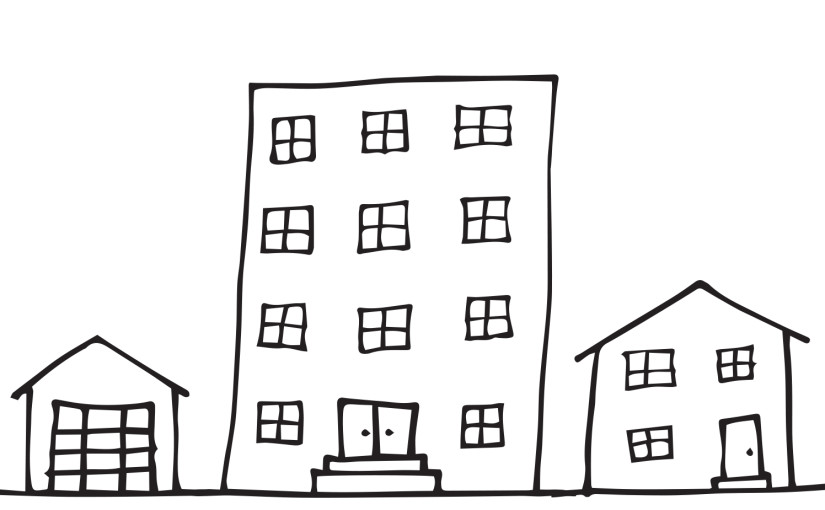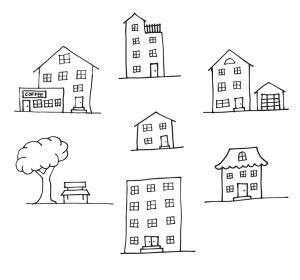John 1:14 (The Message)
The Word became flesh and blood,
and moved into the neighborhood.
We saw the glory with our own eyes,
the one-of-a-kind glory,
like Father, like Son,
Generous inside and out,
true from start to finish.
This scripture illuminates the wonder of God becoming a person just like us. This transformation of God doesn’t leave him hovering at an arm’s-lengths distance from us – but takes him directly to our most grounding spheres – our neighborhoods. Jesus came to be close to us, to interact with us – to dwell among us.
Take a minute to think about the kind of neighborhood God moved into when He became human. Who did he see? Who did he eat with and sit at parties with? Who did he spend time with?
Take a minute to scan your own neighborhood. Who do you see in your neighborhood? Who do you hope to eat and sit at parties with? Who do you hope to spend time with?
Take time to imagine Jesus in your neighborhood. Picture Him in the apartment next to you, the house across from you, the bench outside your building, on your sidewalks – how could you imagine the impact of His generosity playing out in your neighborhood? Pray for this imagined picture to move toward reality in your neighborhoods.
Invitation:
Use the “Neighboring Map” below as a visual prayer guide. Pray throughout your week for Jesus’ generosity to drip into your neighborhood. Pray over your neighbor’s homes as you look at this map. If you know your neighbor’s names – incorporate them into your prayers as well.
(Click the image for a larger version or download a PDF)
For Families:
Mr. Rogers Theme Song, “Won’t You Be My Neighbor”:
Lyrics:
It’s a beautiful day in this neighborhood,
A beautiful day for a neighbor,
Would you be mine?
Could you be mine?
It’s a neighborly day in this beautywood,
A neighborly day for a beauty,
Would you be mine?
Could you be mine?
I have always wanted to have a neighbor just like you,
I’ve always wanted to live in a neighborhood with you.
So let’s make the most of this beautiful day,
Since we’re together, we might as well say,
Would you be mine?
Could you be mine?
Won’t you be my neighbor?
Won’t you please,
Won’t you please,
Please won’t you be my neighbor?
Fred Rogers was an ordained minister and his faith surfaced in subtle, indirect ways that most viewers of his show might have missed – he wasn’t your typical televangelist. He firmly believed “the space between the television set and the viewer was holy ground,” and he trusted God to do the heavy lifting. Before entering his office each day, Mr. Rogers would pray, “Dear God, let some word that is heard be yours.” It’s been said that for nearly 40 years, Mr. Rogers entered homes to bandage broken psyches, mend fences of division, and preach peace.
Talk with your family about what neighboring means to them. What are your hopes for intersection with your neighbors? What are your hopes for your neighborhood? What is your prayer in neighboring over the next 6 weeks?
How does the idea of God doing the heavy lifting in your efforts of neighboring resonate with you?
Invitation:
Pray about one small “next step” that you could take in neighboring as a family.
Eulogy v. Resume Virtues
Steve kicked off our Art of Neighboring series this Sunday and mentioned in his sermon the notion of a “living eulogy”.
David Brooks an author and columnist for The New York Times, talks about this living eulogy sentiment as well. He believes that there are two sets of virtues, the resume virtues – of which our culture and educational systems place high value on – the skills that you bring to the marketplace. And the eulogy virtues, which are the ones that are talked about at your funeral (or in the case of a living eulogy, ones that you can identify in someone alive) – these virtues focus on whether you were “kind, brave, honest or faithful. Were you capable of deep love?”
Brooks goes on to talk about this idea of deep love – this energizing love – as something that he believes is an essential piece in experiencing the richest possible life. Here’s a snippet from his article around “energizing love”:
Dorothy Day (social activist and journalist), led a disorganized life when she was young: drinking, carousing, a suicide attempt or two, following her desires, unable to find direction. But the birth of her daughter changed her. She wrote of that birth, “If I had written the greatest book, composed the greatest symphony, painted the most beautiful painting or carved the most exquisite figure I could not have felt the more exalted creator than I did when they placed my child in my arms.” (You can read the full article here)
That kind of love decenters the self. It reminds you that your true riches are in another. Most of all, this love electrifies. It puts you in a state of need and makes it delightful to serve what you love.
Dorothy Day made unshakable commitments in all directions. She became a Catholic, started a radical newspaper, opened settlement houses for the poor and lived among the poor, embracing shared poverty as a way to build community, to not only do good, but be good. This gift of love overcame, sometimes, the natural self-centeredness all of us feel.
Jesus seems to corroborate that this energizing love is something we too, can access when we think about neighboring. He says in Matthew 22: 37-39 (NIV):
37 Jesus replied: “‘Love the Lord your God with all your heart and with all your soul and with all your mind.’ 38 This is the first and greatest commandment. 39 And the second is like it: ‘Love your neighbor as yourself.’
How does the sentiment “your true riches are in another” resonate as you think about your neighbors?
Invitation:
If the word “love” feels like a hurdle as you think about the neighbors that surround you – pray that Jesus would start to crack open and energize this word for you.



